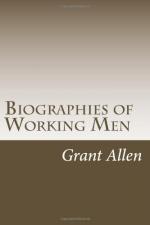The success of the Stockton and Darlington railway was so immense and unexpected, the number of passengers who went by it was so great, and the quantity of coal carried for shipment so far beyond anything the projectors themselves could have anticipated, that a desire soon began to be felt for similar works in other places. There are no two towns in England which absolutely need a railway communication from one to the other so much as Liverpool and Manchester. The first is the great port of entry for cotton, the second is the great centre of its manufacture. The Bridgewater canal had helped for a time to make up for the want of water communication between those two closely connected towns; but as trade developed, the canal became too small for the demands upon it, and the need for an additional means of intercourse was deeply felt. A committee was formed to build a railway in this busy district, and after a short time George Stephenson was engaged to superintend its construction.
A long and severe fight was fought over the Liverpool and Manchester railway, and it was at first doubtful whether the scheme would ever be carried out. Many great landowners were strongly opposed to it, and tried their best to keep the bill for authorizing it from passing through Parliament. Stephenson himself was compelled to appear in London as a witness before a parliamentary committee, and was closely cross-examined as to the possibilities of his plan. In those days, even after the success of the Stockton and Darlington line, his views about the future of railways were still regarded by most sober persons as ridiculously wild and enthusiastic; while the notion that trains might be made to travel twice as fast as stage-coaches, was scouted as the most palpable and ridiculous delusion. One of the members of the committee pressed Stephenson very hard with questions. “Suppose,” he said, “a cow were to get upon the line, and the engine were to come into collision with it; wouldn’t that be very awkward, now?” George looked up at him with a merry twinkle of the eye, and answered in his broad North Country dialect, “Oo, ay, very awkward for the coo.”
In spite of all Stephenson’s earnestness and mother wit, however, Parliament refused to pass the bill (in 1825), and for the moment the engineer’s vexation was bitter to behold. He and his friends plucked up heart, however; they were fighting the winning battle against prejudice and obstruction, and they were sure to conquer in the long run. The line was resurveyed by other engineers; the lands of the hostile owners were avoided; the causes of offence were dexterously smoothed down; and after another hard fight, in 1826, the bill authorizing the construction of the Liverpool and Manchester railway was finally passed. The board at once appointed Stephenson engineer for constructing the line, at a salary of 1000 pounds a year. George might now fairly consider himself entitled to the honours of an Esquire.




